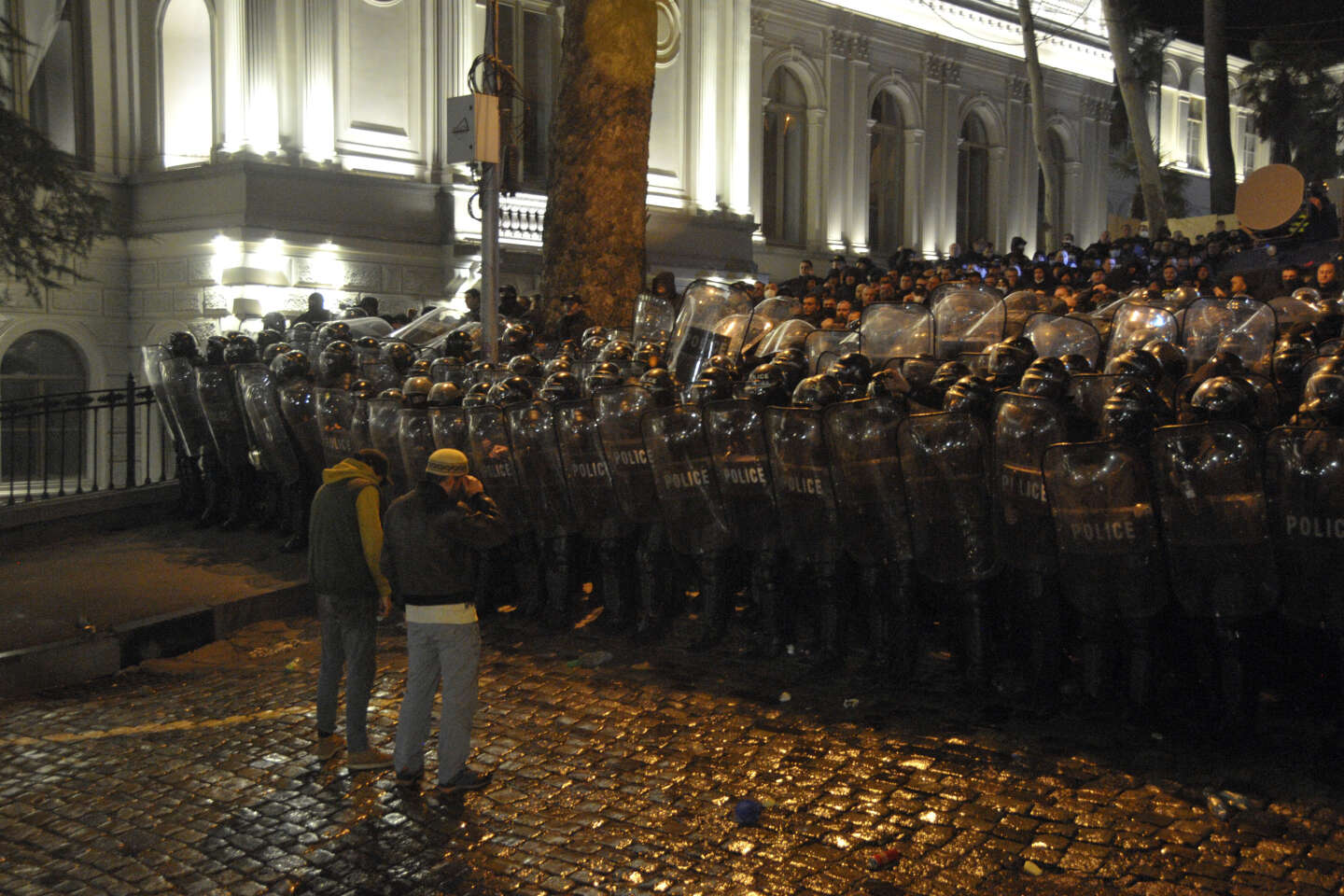
Thousands of demonstrators in Tbilisi against the “foreign agents” law.

The bill on “foreign agents” that Georgian deputies are preparing to adopt brought thousands of people into the streets on Tuesday, March 7. Critics of the authority denounced the text as a tool of intimidation against the media and NGOs.
Police used tear gas and water cannon against protesters who gathered outside parliament after MPs passed the bill in first reading, according to a clip from independent Pirelli TV. During the largely peaceful march, at least one protester threw a Molotov cocktail at a cordon of riot police, according to the same source.
The demonstrators were protesting against this law, which stipulates that organizations that get more than 20% of their funding from abroad must register in their name.“foreign agents”, taking into account fines. As mentioned Reporters Without BordersThis text refers to a similar law adopted in Russia in 2012 that the Kremlin has used extensively to crack down on media outlets, opposition organizations, or minor critical voices.
The president supports the protesters
Georgian President Salome Zurabishvili spoke on television from New York to say ” side by side “ some protesters. Today you represent a free Georgia that sees its future in Europe and that will not allow anyone to steal this future from it.She added a student to be law “canceled” He promised to use his veto power. However, this veto could be overridden by the ruling Georgian Dream party, which controls more than half of the seats in parliament.
Georgia, a small ex-Soviet republic in the Caucasus, has ambitions to join the European Union (EU) and NATO, but several government moves recently have cast a shadow over those aspirations and raised doubts about its relations with the Kremlin.
❗️ Protesters in #Tbilisi broke through barriers and are trying to storm the Georgian parliament building… https://t.co/YcbsCwYCqk
Police use water cannons against a peaceful demonstrator waving an EU flag outside the Georgian Parliament in protest of… https://t.co/OxugHQ78Lj
Georgian Prime Minister Irakli Garibashvili claimed that his policy towards Moscow was just that “balanced” And aim to guarantee Peace and stability. In recent years, the Georgian authorities have faced growing international criticism over an alleged backsliding of democracy that has damaged Tbilisi’s relations with Brussels.
‘Dark day for Georgian democracy’
Georgia applied for EU membership along with Ukraine and Moldova a few days after Russia invaded Ukrainian territory, on February 24, 2022. In June, the EU granted candidate status to Ukraine and Moldova, but required Georgia to implement several reforms before obtaining similar status.
The US Embassy in Georgia denounced the legislation, which passed on first reading, saying it was ‘Dark day for Georgian democracy’.
“The parliament’s adoption of these Kremlin-inspired laws contradicts the obvious desire of the Georgian people to integrate into Europe and develop democratically.”She said in a Reply on facebook.
“The continuation of these laws will harm Georgia’s relations with its strategic partners.”The embassy said, although the United States also has legislation on “foreign agents”.

“Unapologetic pop culture trailblazer. Freelance troublemaker. Food guru. Alcohol fanatic. Gamer. Explorer. Thinker.”
